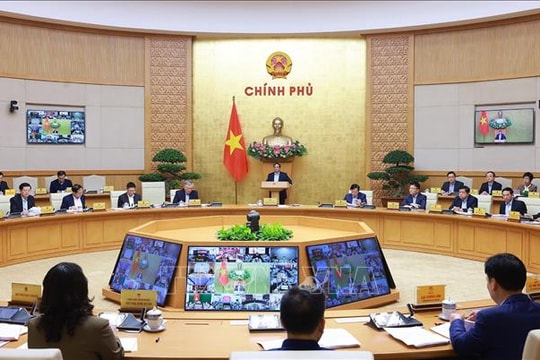Industrial Revolution 4.0: Universities must change
“We need immediate solutions to effectively innovate education, especially university education, if we do not want to fall further and further behind other countries in the region and the world.”
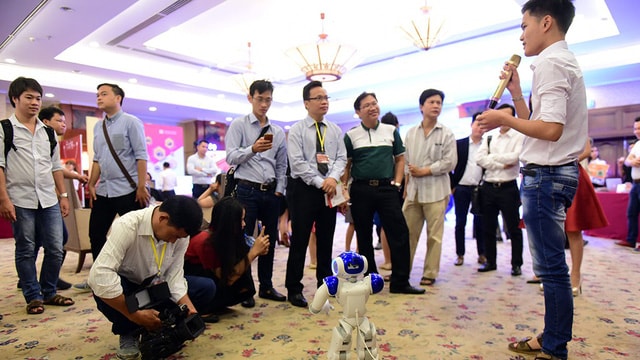 |
| Ho Chi Minh City National University demonstrated robots at the Youth Technology Day on December 8. In the 4th Industrial Revolution, robots will replace many human jobs. Photo: Quang Dinh |
That is a content in the document "Vietnam with the Fourth Industrial Revolution" (CMCN 4.0) of the Party Central Economic Committee, edited by Mr. Nguyen Van Binh - head of the committee.
How will universities face the 4th Industrial Revolution?
Big impact
Many experts predict that the 4.0 Industrial Revolution will put university education in front of many huge challenges.
Dr. Dam Quang Minh - Principal of Thanh Tay University - informed: "According to the assessment of Professor Frey and Professor Osborne at Oxford University (UK), up to 47% of jobs will be affected by the 4.0 Industrial Revolution.
The most obvious is that the demand for some industries related to the 4.0 Industrial Revolution such as information technology, biotechnology... has begun to increase. Besides the increase and decrease in training needs of different industries, the training content is also different.
For example, the marketing industry is undergoing a strong shift from traditional marketing to modern marketing and digital marketing. Meanwhile, jobs are the product of universities, so universities will naturally have a huge impact...".
Mr. Le Tri Tin - Business Director of the Drive and Control Division of Bosch Rexroth, an expert in Industry 4.0 systems - also said that Industry 4.0 will affect the requirements for professional qualifications and skills of some professions.
Specifically, the fields of automation, mechatronics, applied informatics, data processing... will have an expansion in training knowledge as well as specialized skills. "Therefore, it requires universities to change as well" - Mr. Tin emphasized.
Rapidly changing industry structure
From the university perspective, Associate Professor Dr. Do Van Dung - Principal of Ho Chi Minh City University of Technical Education - said that the characteristics of the 4.0 Industrial Revolution are the emergence of artificial intelligence, automation technology, new materials and information technology in data analysis (big data).
With that characteristic, the industry structure will change very quickly. Most of the devices in the 4.0 Industrial Revolution era are multi-industry devices, for example, the smartphone has combined many functions, not just a tool for listening and speaking. To make this product, it is necessary to have the coordination of many industries.
"Also due to the nature of the times, lecturers no longer show lectures in class because almost all knowledge students can easily find online. With the 4.0 Industrial Revolution, students have to study mainly on their own.
The role of the teacher also changes from teaching to guiding. Lecturers guide students through projects, solving problems from reality. This requires lecturers to increase their field work to have projects to guide students.
"If teaching is limited to just inside the school, lecturers will no longer be able to teach," Mr. Dung affirmed.
Similarly, Associate Professor Dr. Nguyen Van Thu - Principal of Ho Chi Minh City University of Transport - said that advances in information technology will create new forms of training. Mass online training systems and online training are new forms of training that challenge traditional training methods.
These are open online university courses that have tens of millions of students enrolled. In the near future, centers of excellence will offer online courses that are on demand and very close to reality.
Accordingly, these centers invite the best professors in each field to write on this issue. These centers of excellence will provide such courses. The price of this course may be expensive at first but gradually it will be cheaper and even free.
"The above challenges require universities to, on the one hand, promote research and development of new technologies to meet the requirements of Industry 4.0, and on the other hand, change themselves to adapt to the new industry," said Mr. Thu.
Associate Professor Dr. Ho Thanh Phong - Principal of International University (Ho Chi Minh City National University) - concluded: "With the 4.0 Industrial Revolution, there needs to be a 4.0 education. There, people, machines, equipment, and work are connected everywhere to create an education system that focuses on personalized training.
In this new concept, schools, people, programs, traditional media... are transformed into smarter objects, placed in a creative and entrepreneurial ecosystem. With education 4.0, the focus is on creativity and value creation. Training programs are no longer mono-disciplinary but "industry-transforming".
The training program is not flexible
Associate Professor Dr. Dinh Duc Anh Vu, Head of the University Department - Ho Chi Minh City National University, said that the current training program is still not flexible, and the content is not suitable to the needs and trends of the 4.0 Industrial Revolution labor market.
Universities carry out training activities in two directions: on the one hand, they must meet social orientation, on the other hand, they must train and provide human resources to meet the requirements of the labor market.
Meanwhile, research by the World Bank and the International Labor Organization shows that the future of human resources requires more skills and a variety of skills.
Some jobs can be replaced by machines, equipment and robots, but jobs related to human skills such as communication skills, teamwork skills, creativity skills, problem-solving skills... will be difficult to replace by robots.
Therefore, these skills will become important for the future of Industry 4.0 alongside technical skills such as automation, mechatronics, information technology...
According to TTO
| RELATED NEWS |
|---|

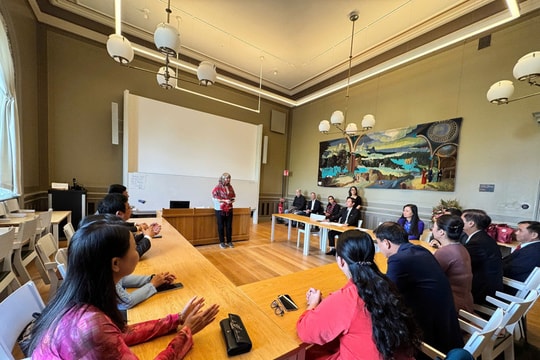
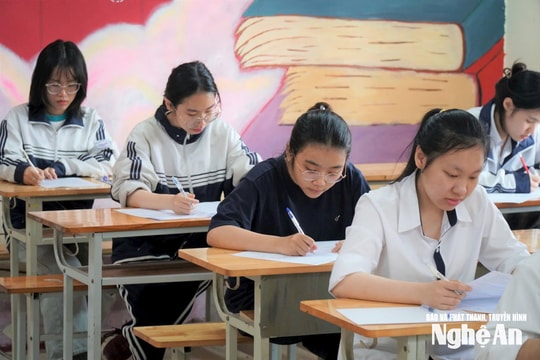
.jpg)

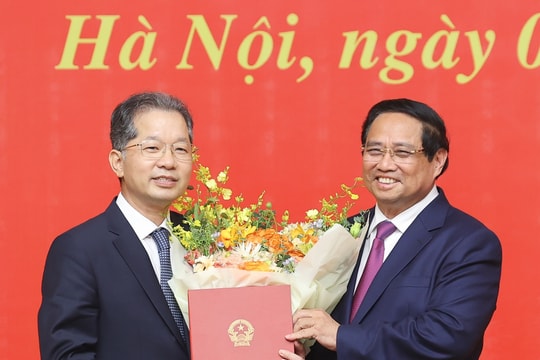
.jpg)
